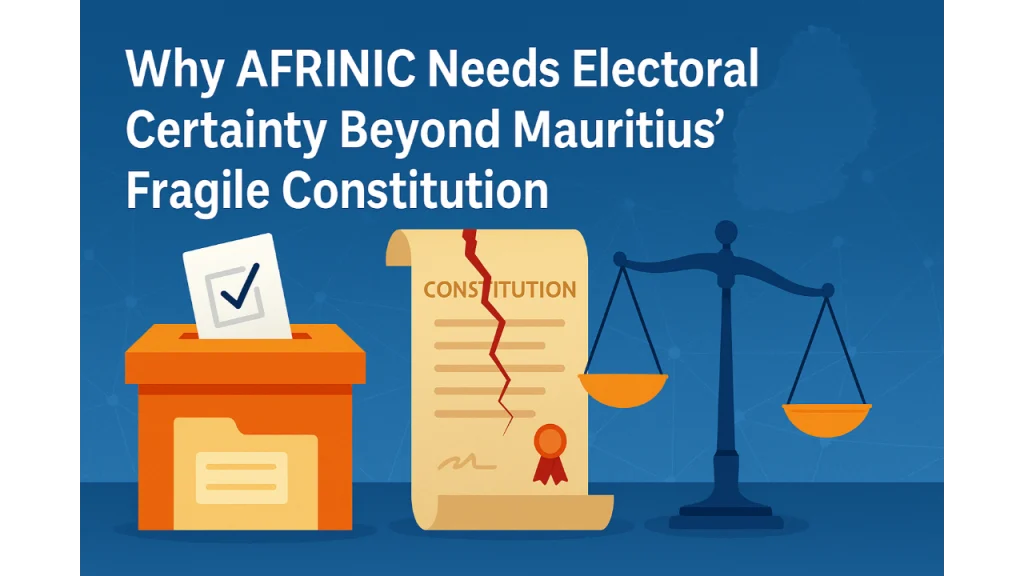- September 2025 poll exposes risks of electoral capture in AFRINIC.
- Fragile constitutional safeguards weaken governance integrity.
September poll under fragile legal footing
AFRINIC’s September 2025 board election, held from 10–12 September and overseen by a court-appointed Receiver, has again triggered a storm of criticism. Eight directors were declared elected, but the process openly disregarded AFRINIC’s constitution and Mauritius’ Companies Act.
Observers note that the annulment of the June election over a single proxy vote was already a warning sign. Yet instead of strengthening safeguards, AFRINIC pressed ahead under a legal framework riddled with contradictions. Reports in African Business and analysis by ISOC highlight how the lack of clear, enforceable rules allowed external actors to reshape the process.
For critics, this is not democracy but managed theatre: a fragile constitutional environment where court orders replace member rights and bylaws are cast aside.
Also read: AFRINIC election: Voter fraud uncovered as ECom member threatens to resign
Also read: Why AFRINIC’s election security needs stronger legal guarantees in Mauritius
A constitution that fails to protect members
At the heart of AFRINIC’s collapse is its inability to uphold its own bylaws. September’s poll violated provisions on NomCom neutrality, stripped members of proxy voting rights, and altered procedures for director appointments without member approval. Each of these breaches undermined the principle that AFRINIC should be run by its community, not courts or governments.
Legal experts warn that Mauritius’ fragile constitutional safeguards have enabled this overreach. By declaring AFRINIC a “declared company,” the state gave itself powers inconsistent with the registry’s membership-driven model. Instead of resolving disputes, the legal framework now invites further capture.
Receiver’s overreach entrenches dysfunction
The Receiver, whose mandate was originally limited to June, extended his role to September and redesigned election procedures. Critics argue this went beyond facilitation into rulemaking — a direct violation of AFRINIC’s bylaws.
The contradiction is stark: a single disputed proxy annulled June’s poll, yet wholesale disenfranchisement and bylaw breaches in September were permitted. This inconsistency illustrates how fragile Mauritius’ constitutional oversight has become, offering no real protection for member rights.
Also read: AFRINIC and the risk of disputed elections in a weak legal framework
Beyond Mauritius: safeguarding Internet governance
The AFRINIC case shows the risks of hosting global Internet institutions in jurisdictions with fragile constitutional safeguards. Allowing one government or court to overrule member-driven processes sets a precedent that threatens the entire multistakeholder model.
Until AFRINIC restores credible elections and respects its bylaws, its September 2025 results must not be recognised. Anything less would legitimise arbitrary governance and expose Africa’s Internet to capture by political and judicial interests.

